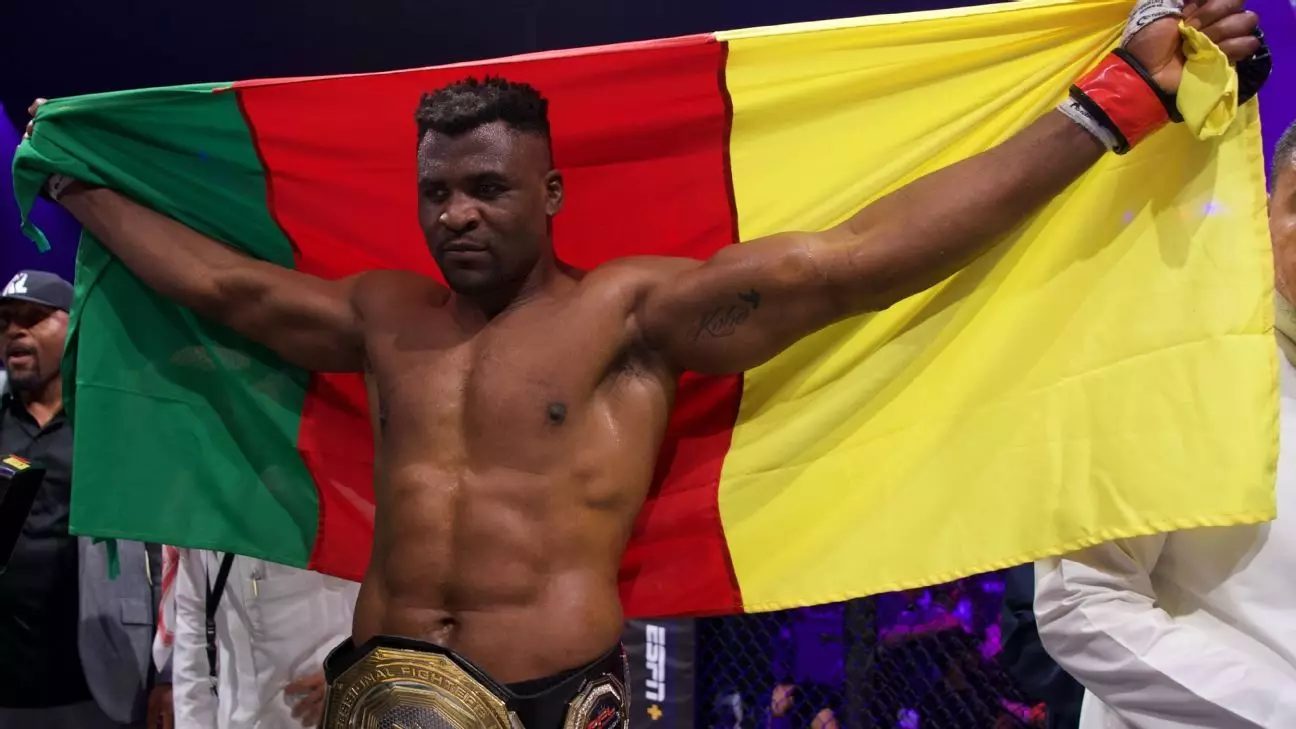Former UFC heavyweight champion Francis Ngannou’s recent tragedy is a stark reminder of the fragile interplay between fame and personal responsibility. While riding his motorcycle over Easter weekend in Cameroon, Ngannou was reportedly involved in an accident that claimed the life of a young woman. This incident has marred an otherwise impressive career, bringing forth an outpouring of grief, scrutiny, and reflection not just about regret but also about accountability and compassion in the wake of tragic events.
A Statement of Support and Grief
In his first public comment following the incident, Ngannou conveyed a sense of deep remorse and commitment to the family of the victim. He expressed his intention to support and stand by them during their time of grief. “I’ve met with them privately to share in their grief,” Ngannou stated, emphasizing his genuine concern and willingness to carry the emotional weight alongside the family. It’s an important sentiment, highlighting how public figures must confront the consequences of their actions, not just through fame and money, but through genuine humanity and kindness.
The Duality of Fame
Ngannou’s rise to prominence in the MMA world had positioned him as a symbol of inspiration for many, transcending the sport with his personal narrative of hardship and triumph. Leaving the UFC under contentious circumstances only to pursue boxing dreams didn’t dim his spotlight—rather, it amplified the public’s interest in his life. Yet, with fame comes a certain expectation of behavior. This incident has resulted in vast public scrutiny, challenging the narrative of empowerment often associated with his story. Can one be both an idol and a person of accountability? The answer seems to be a resounding yes, but it requires work and introspection.
Struggles Beyond the Ring
To further complicate matters, Ngannou’s journey has been marred by personal tragedy; the loss of his infant son Kobe to a critical health condition represents a profound emotional toll that adds layers of complexity to his current situation. As he faces professional chinks in his armor through losses against boxing titans like Tyson Fury and Anthony Joshua, the grief from both personal and public realms seems to create a tempest of emotional turmoil. Recognizing the convergence of these experiences is essential. The burden of grief can reshape an individual, altering how they interact with the world around them.
Ongoing Investigation and Responsibilities
As the investigation into the accident continues, Ngannou must navigate this challenging terrain with sensitivity. The scrutiny not only highlights the incident but also raises questions about responsibilities that come with both public and private life. The balance between maintaining personal integrity and addressing societal expectations cannot be overstated. Ngannou’s advocacy in this current moment could pave the way for dialogue about accountability in sports, celebrity culture, and personal tragedy.
In the realm of high-stakes sports and high-profile lives, the lessons learned from Ngannou’s experience could serve as a catalyst for fostering empathy and understanding, while maintaining the essence of what it truly means to be a champion—both in and out of the ring.

